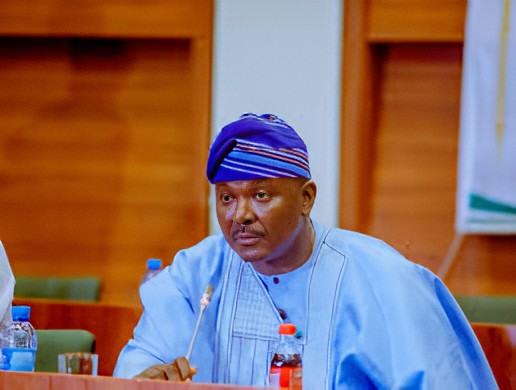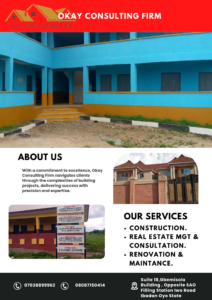Akin Alabi Backs Legislative Reforms to Boost Women’s Political Participation

Female stakeholders from across the political and business spheres have called for urgent and active support towards increasing women’s participation in Nigerian politics, describing it as a key step towards gender equity and socio-economic development.

This call was made over the weekend during a women-in-politics sensitisation forum themed “Understanding Our Role in Active Politics”, organised by a young farmer and political advocate, Omolara Svensson. The event, which held at the Akin Alabi Foundation, Babaleje House, Iwo Road, Ibadan, drew women leaders, political stakeholders, and advocates from within and outside Oyo State.


Delivering his keynote address, the member representing Egbeda/Ona Ara Federal Constituency in the House of Representatives, Hon. Akin Alabi, stressed the need for collective and institutional action to improve female inclusion in Nigeria’s democratic processes.
He decried the poor representation of women in both chambers of the National Assembly, stating, “We must first acknowledge that there is a problem. If you look at the House of Representatives and the Senate, the number of women is alarmingly low. The same can be said for other key political positions.”

Alabi noted that cultural and domestic challenges often place women at a disadvantage, saying, “Politics in Nigeria can be extremely stressful, with late-night meetings and sudden travels that are difficult for many women juggling family responsibilities.”
He called on male counterparts to be more supportive, adding that legislative initiatives were underway to correct the imbalance. Notably, he referenced a proposed bill seeking 182 additional legislative seats exclusively for women—74 at the federal level and 108 across state assemblies—as well as a constitutional amendment aimed at securing one permanent seat for women per state.
“I am committed to supporting such proposals when they come up for vote in the House. It’s time we create more structured opportunities for competent women to lead,” he affirmed.
Also speaking, guest speaker Dr. Oyenike Adeleke urged women to rise above societal limitations and become actively involved in politics. She appealed to community, religious, and traditional leaders to back women’s ambitions.
“Women lead major organisations and conglomerates. That should tell us something: we are not only capable, but essential to governance. Let us change the outdated narrative that politics is not for women,” she declared.
In her submission, former Head of Service in Oyo State, Mrs. Hannah Ogunesan, reiterated that the battle for equal political participation must begin with how women perceive themselves.
“There is no real difference between a man and a woman when it comes to leadership capacity. If you are not involved, you may not be considered. But if you work for it, you’ll be recognised,” Ogunesan said.
Earlier, the organiser of the event, Omolara Svensson, emphasised that women’s inclusion in politics is not a favour but a democratic necessity.
“We need more women at the table where decisions are made—at every level. Challenges at home are real, but women have proven time and again that we are uniquely capable of balancing both personal and public responsibilities,” she noted.
Svensson further described the sensitisation programme as a vital step in advancing women’s voices in governance and public life.
“As a nation, we can’t get it right if we leave women behind. There’s no shortcut to inclusive governance. It starts with more women stepping forward—and more structures enabling them to succeed,” she concluded.
The forum ended with a renewed pledge among attendees to strengthen grassroots mobilisation, advocacy, and policy engagement aimed at amplifying women’s roles in politics ahead of the forthcoming elections.

